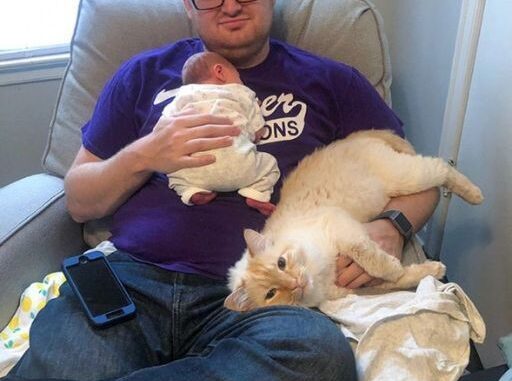
I always thought I understood silence. Growing up with Keane, you learn to read things most people miss—a glance, a twitch, his quiet routine of lining up pencils before homework. You learn patience or how to pretend, because pretending is what got us through most of childhood.
Keane was diagnosed when he was three. Our house became quieter, Mom grew tired, and Dad got angry at little things. I learned to be invisible. Keane, however, stayed the same—gentle, withdrawn, and smiling at clouds or ceiling fans. He didn’t talk—not then, not really ever—until one Tuesday.
It was a chaotic morning with Owen, my baby, and I was exhausted. Keane was in the corner of the living room, absorbed in his tablet. He’d come to live with us six months ago, after our parents passed. It wasn’t perfect, but it worked. Keane didn’t demand much; he hummed quietly, and I barely noticed it.
Then that Tuesday, after Owen’s tantrum, I stepped into the shower for a brief escape. I heard Owen’s frantic cry. I rushed out, but when I reached the living room, I froze. Keane was sitting in my armchair with Owen asleep on his chest, cradling him like he instinctively knew how.
Mango, our cat, was curled on Keane’s knees, purring. Keane looked up and said softly, “He likes the humming.”
It hit me like a punch. Keane, who hadn’t spoken in years, was suddenly here—fully present.
That day, I let Keane hold Owen longer, and over the next week, Keane began speaking more. “Owen likes pears better than apples,” he’d say. He started organizing Owen’s things and even changing his diaper. I cried more in those two weeks than I had all year.
Will noticed too. “It’s like having a roommate who just… woke up,” he said. But as Keane became more present, I realized I’d missed something important about him all along.
Then, one night, Keane came to me in a panic. He’d dropped Owen in the crib. I checked Owen—he was fine—but Keane sat there, whispering, “I ruined it.”
I reassured him. “You made a mistake. A normal one. You’re not broken, Keane. You never were. I just didn’t know how to hear you.”
That’s when he cried—silent, heavy sobs. I held him, finally understanding that love isn’t about fixing people, but seeing them.
Now, six months later, Keane volunteers at a sensory play center and is Owen’s favorite person. Owen’s first word was “Keen,” not “Mama” or “Dada.” I never knew silence could be so loud, or that a few whispered words could change everything.
“He likes the humming.” And I like how we’ve found each other again. As family, no longer waiting to be understood.
If this story resonated with you, share it with someone who could use a little hope today. And don’t forget to like—it helps others see what love really sounds like.